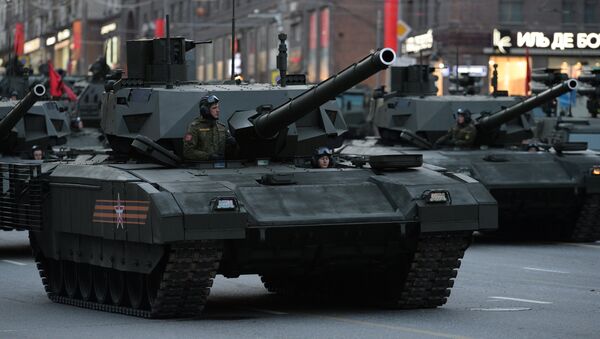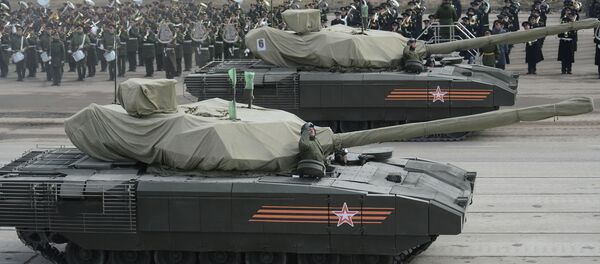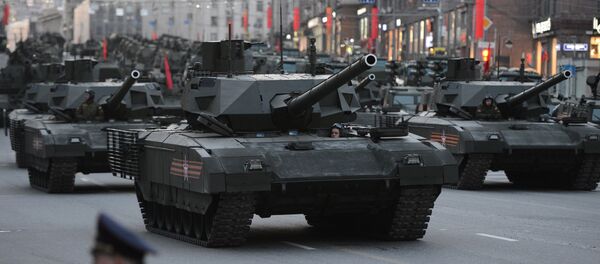Russian designers have demonstrated that they can develop the next generation of weapons system, Professor Nikolas K. Gvosdev, a Russian-American security expert, noted, adding that the United States has good reason to fear Russia's new Armata battle-tank.
"For post-Soviet Russia, it makes sense to revitalize defense industries," the professor pointed out, emphasizing that "part of the strategy for reindustrializing Russia, therefore, is to rejuvenate the defense industry and take advantage of growing demand–in a more unipolar, G-zero world–for sophistical armament systems."
The world's emerging powers view Moscow with its network of design bureaus, factories, industrial plants and testing grounds as an alternative supplier of arms. And they will undoubtedly jump at a chance to bolster their defense capabilities.
At the same time there are a number of countries seeking ways to constrain America's "freedom of action" in the world, the expert remarked. They are well aware that since the end of the Cold War Washington "continues to look for low-cost, no-casualty options when it contemplates intervention," and prefers to avoid "a high degree of sacrifice."
"Having more states around the world in possession of equipment, particularly systems that Washington does not want sold, as a way to create difficulties for the United States is seen as worth the longer-term danger," Nikolas K. Gvosdev stressed.





